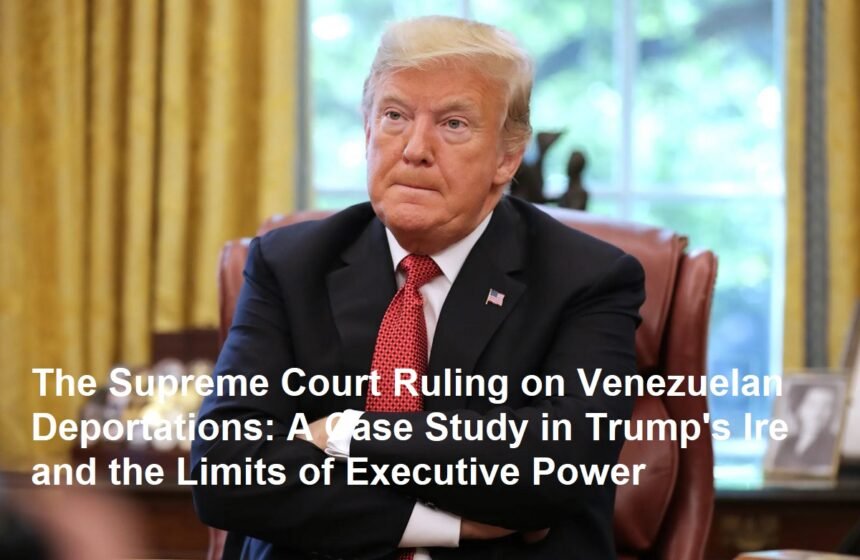The Supreme Court’s recent decision to halt the deportation of Venezuelan nationals has ignited a predictable firestorm of controversy, primarily fueled by the characteristic outbursts of former President Donald Trump. This episode not only highlights the ongoing legal battles surrounding immigration policy in the United States, but also serves as a stark reminder of the limits placed on executive power, even for a figure known for pushing those boundaries.
The Supreme Court’s intervention, though specifics remain publicly scarce, likely stemmed from challenges based on established legal precedents concerning due process and the treatment of asylum seekers. While the precise legal arguments presented to the court are confidential, it is likely that the plaintiffs argued that the deportation orders violated international agreements, asylum laws, or constitutional protections afforded to individuals seeking refuge in the United States. The potential for mass deportations of individuals fleeing political and economic turmoil in Venezuela would undoubtedly raise serious concerns about the humanitarian implications and potential violations of international law.
Trump’s reaction, predictably, was swift and scathing. In a series of social media posts and public statements, he condemned the ruling as “weak,” “incompetent,” and “another example of the Deep State undermining America.” This rhetoric, consistent with his established pattern of attacking institutions perceived as opposing his agenda, seeks to undermine the legitimacy of the Supreme Court and sow distrust in the rule of law.
However, Trump’s ire, while vocal and potentially damaging to public perception of the judiciary, ultimately underscores the resilience of the American legal system. The Supreme Court’s decision, regardless of its specific reasoning, serves as a critical check on executive overreach. It demonstrates that even the most powerful individuals are subject to the constraints of the law and the oversight of an independent judiciary.
Furthermore, the case highlights the complex and multifaceted nature of immigration policy. The influx of Venezuelan migrants seeking asylum in the United States is driven by profound political instability, economic collapse, and widespread human rights abuses in their home country. Addressing this complex humanitarian crisis requires a nuanced and compassionate approach, one that acknowledges the legitimate needs of asylum seekers while also safeguarding the security and interests of the United States. Trump’s characteristic approach, centered on mass deportation and border security, fundamentally fails to address the root causes of migration and perpetuates a cycle of human suffering.
Ultimately, the Supreme Court’s decision to halt the deportation of Venezuelan nationals serves as a crucial reminder of the principles of due process, the importance of judicial independence, and the complexities inherent in immigration policy. While Trump’s reaction is predictably inflammatory and divisive, it also underscores the enduring strength of the American legal system in upholding the rule of law and protecting fundamental rights, even in the face of political pressure. This episode provides a valuable case study in the limits of executive power and the enduring significance of a robust and independent judiciary in safeguarding the principles of justice and fairness.











